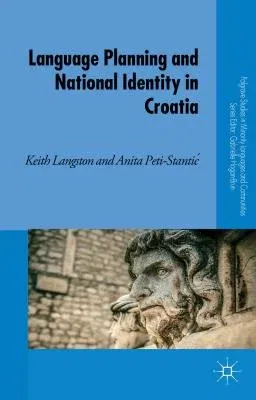K Langston
(Author)Language Planning and National Identity in Croatia (2014)Hardcover - 2014, 19 September 2014

Qty
1
Turbo
Ships in 2 - 3 days
In Stock
Free Delivery
Cash on Delivery
15 Days
Free Returns
Secure Checkout

Part of Series
Palgrave Studies in Minority Languages and Communities
Print Length
344 pages
Language
English
Publisher
Palgrave MacMillan
Date Published
19 Sep 2014
ISBN-10
113739059X
ISBN-13
9781137390592
Description
Product Details
Authors:
Book Edition:
2014
Book Format:
Hardcover
Country of Origin:
IN
Date Published:
19 September 2014
Dimensions:
21.59 x
14.48 x
2.79 cm
Genre:
Anthropological
ISBN-10:
113739059X
ISBN-13:
9781137390592
Language:
English
Location:
London
Pages:
344
Publisher:
Weight:
612.35 gm